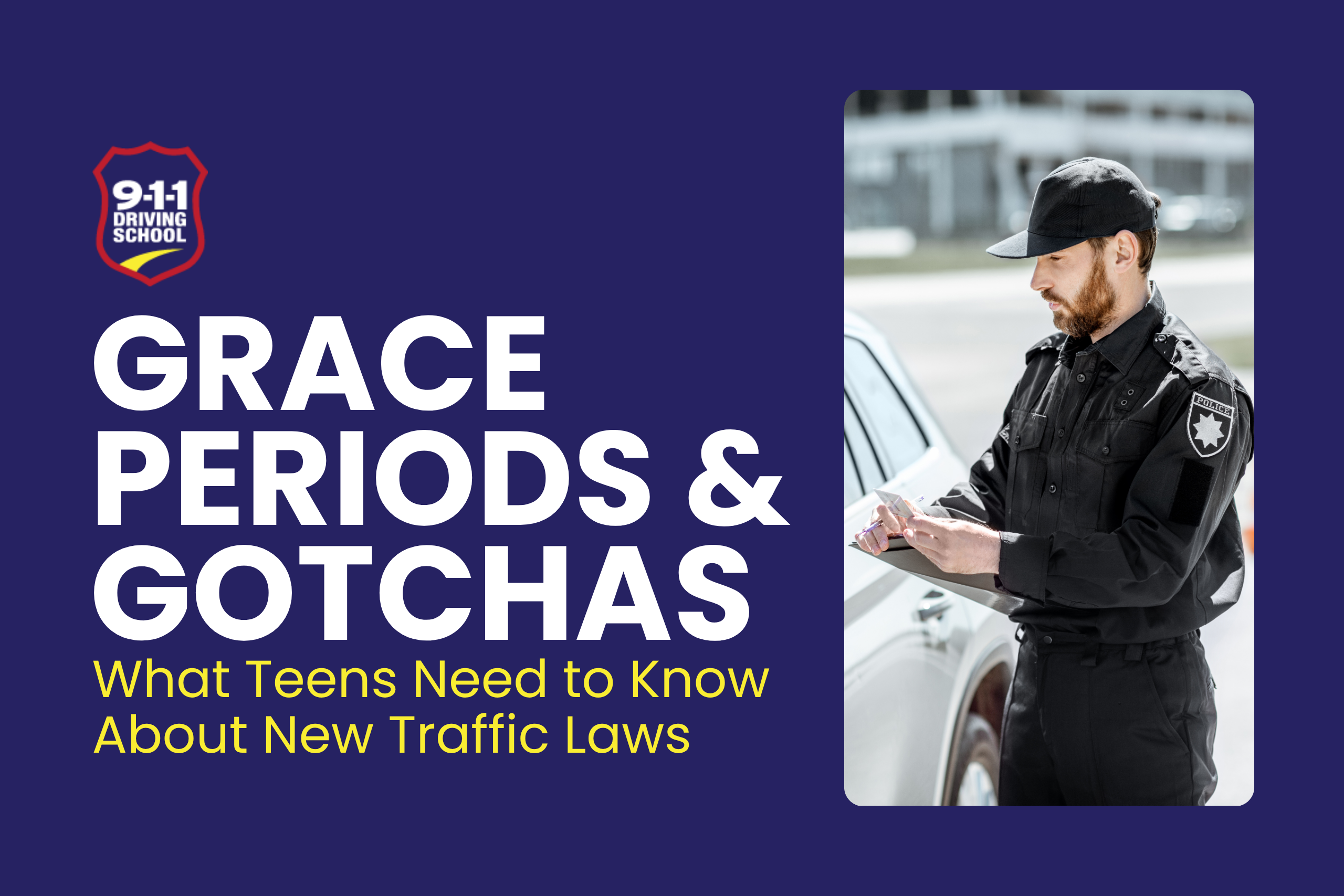
When a new traffic law or enforcement system begins, like school zone speed cameras or distracted driving bans, many states introduce a short “grace period.” During this time, drivers might receive warnings instead of tickets, giving everyone a chance to adjust before fines and points begin.
But that grace period isn’t a free pass. For new and teen drivers, it’s a chance to practice safe habits before the law is fully enforced and to prove that responsibility behind the wheel doesn’t depend on whether someone’s watching.
What a Grace Period Really Means
A grace period typically lasts 30 days after a new law takes effect. For example, when Washington and Florida introduced automated school-zone cameras, drivers received warning notices for the first month before citations were issued. The idea is to educate, not punish, to help drivers form habits that align with the new rules.
Still, every warning counts. Law enforcement tracks those early alerts to identify problem areas, and once the grace period ends, violations start carrying real consequences from tickets and points to insurance increases.
Why It Matters for Teen Drivers
Many new drivers believe that “warning period” means “no harm done.” In reality, the habits formed during those early days can determine whether a teen starts their driving journey with confidence or correction.
Even one violation after enforcement begins can add points to a license or raise insurance premiums. Repeated mistakes can result in suspensions or restricted driving privileges setbacks that often take months to undo.
How Families Can Use the Time Wisely
Parents can help teens treat grace periods as training opportunities. Review new traffic laws together and talk about what’s changing. For example, when headlights are required, what new work-zone rules mean, or where school zone speed cameras are active. Encourage teens to drive as if enforcement already started.
These small choices like slowing in zones, signaling turns, avoiding phone use can create safe routines before any fine or citation ever arrives.
Building Habits That Last
A grace period is meant to teach, not test. The safest drivers are those who don’t need a warning to do the right thing. For families, it’s a reminder that traffic safety isn’t about avoiding tickets. It’s about protecting everyone on the road.
By the time enforcement begins, teens who’ve built good habits won’t have to worry about “gotchas.” They’ll already be driving the way the law intended safely, calmly, and with confidence.